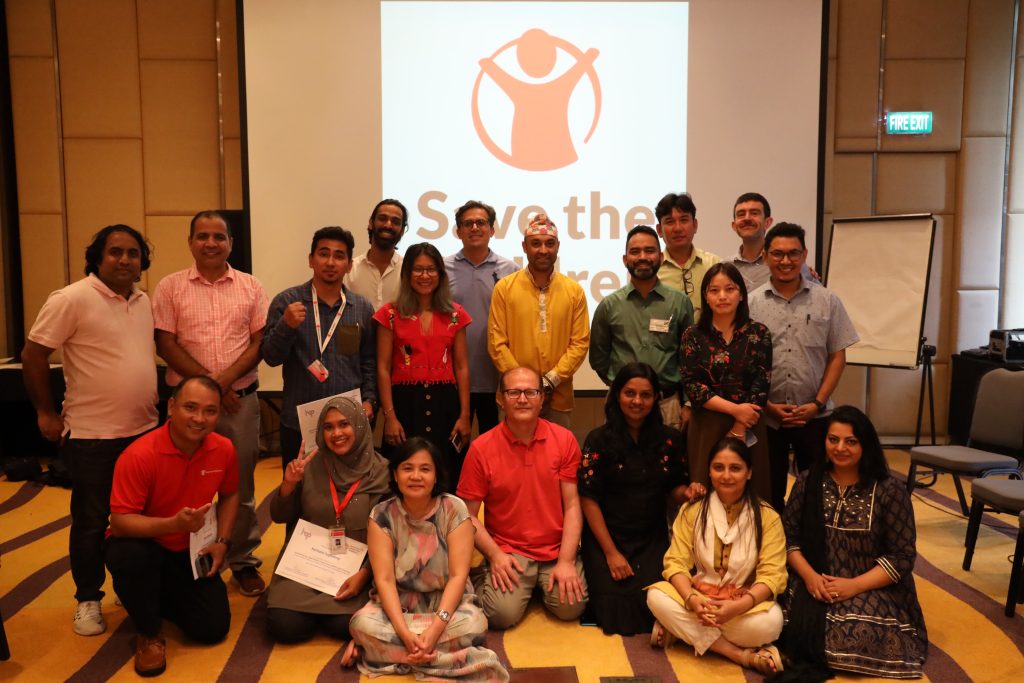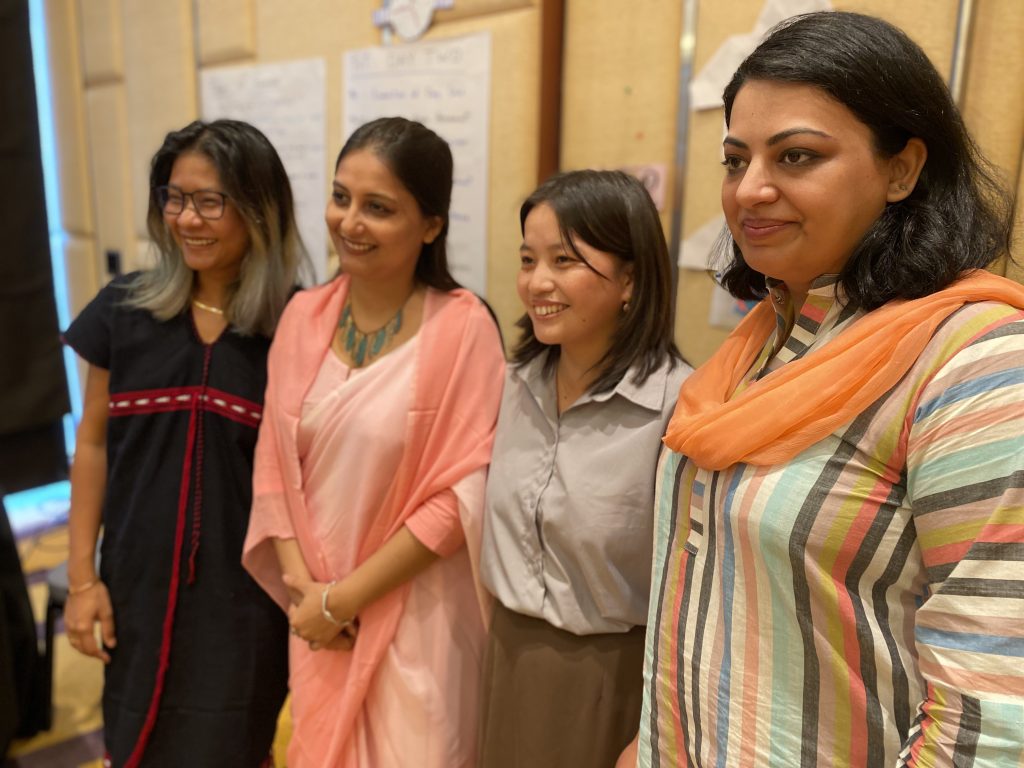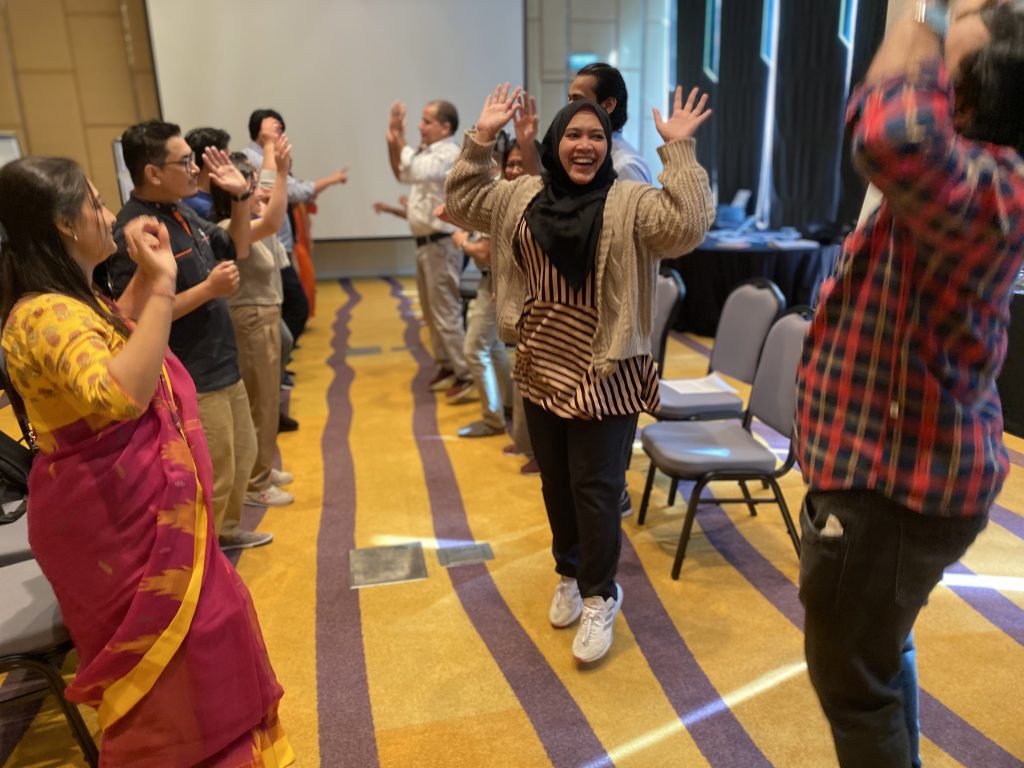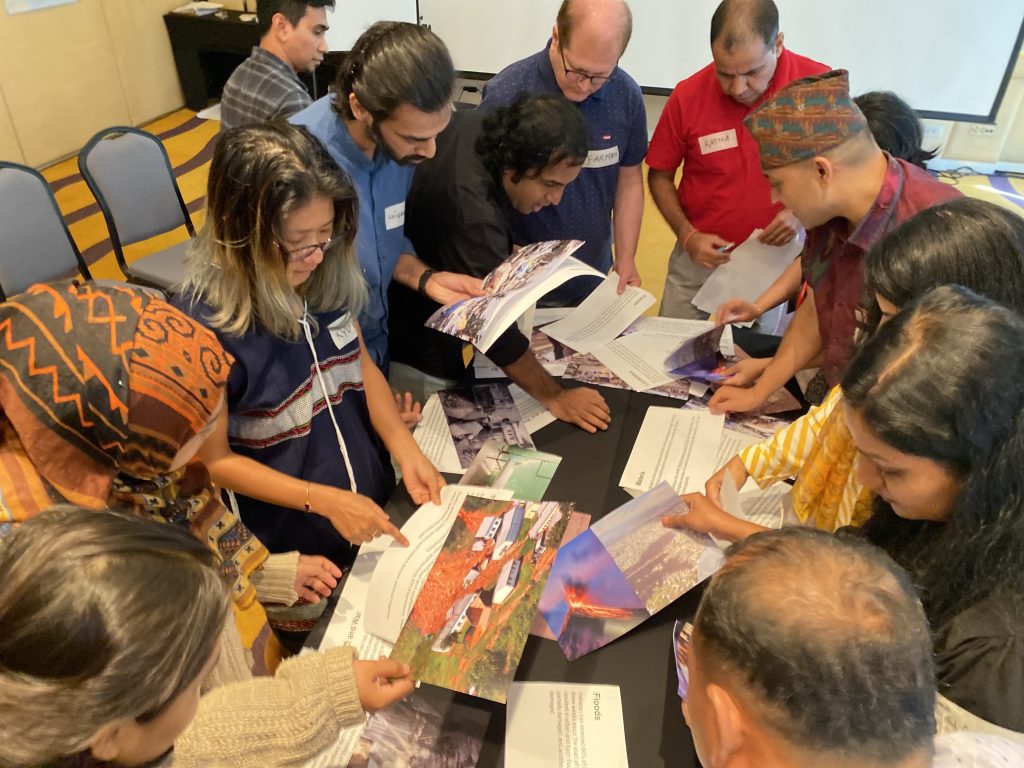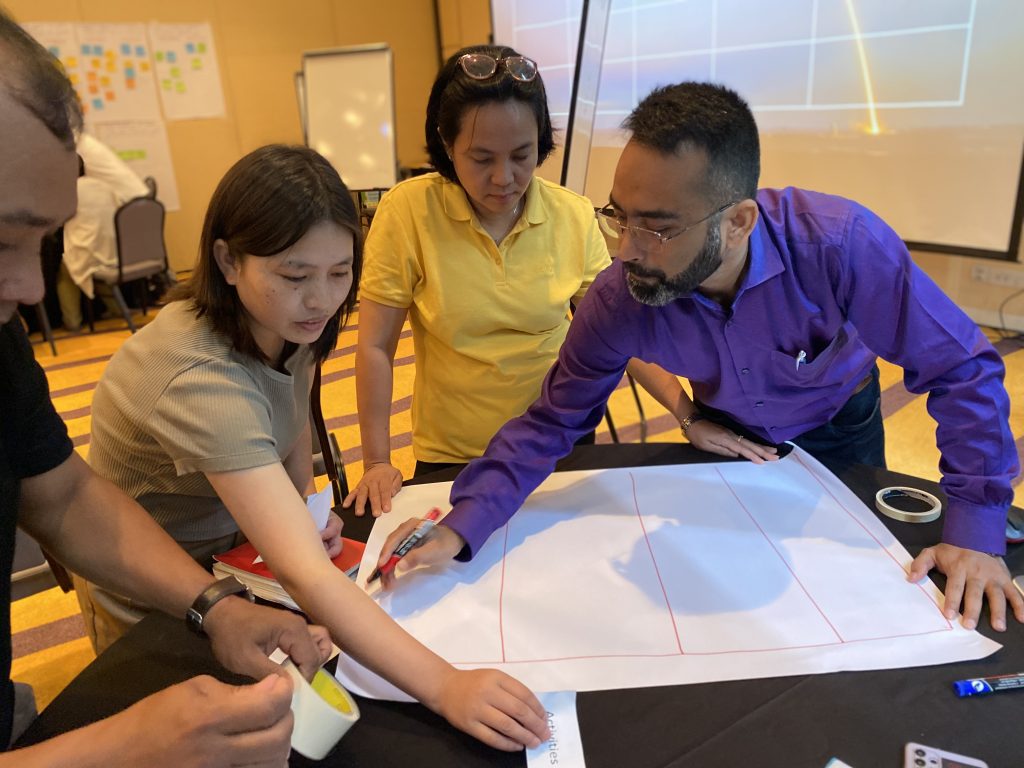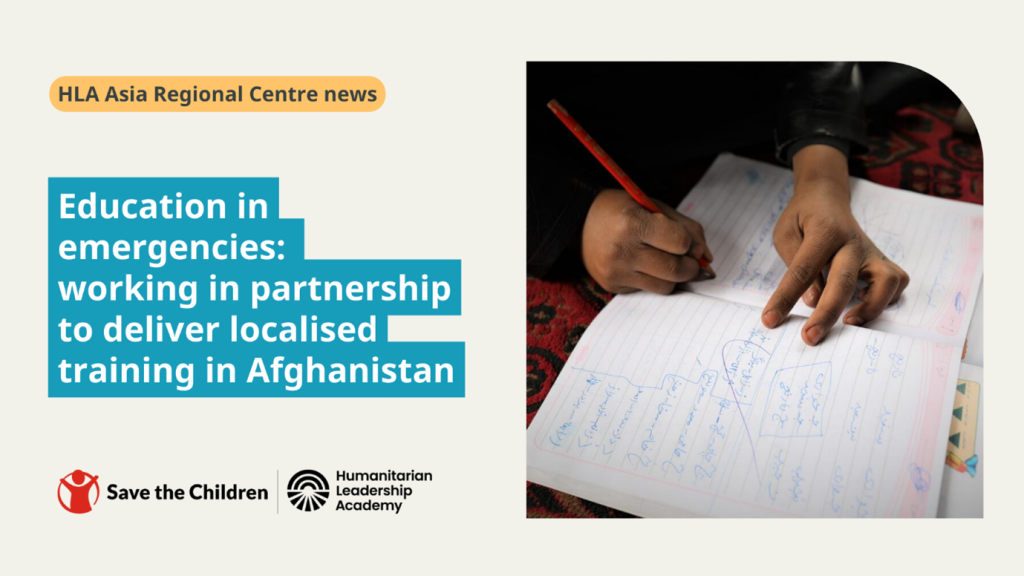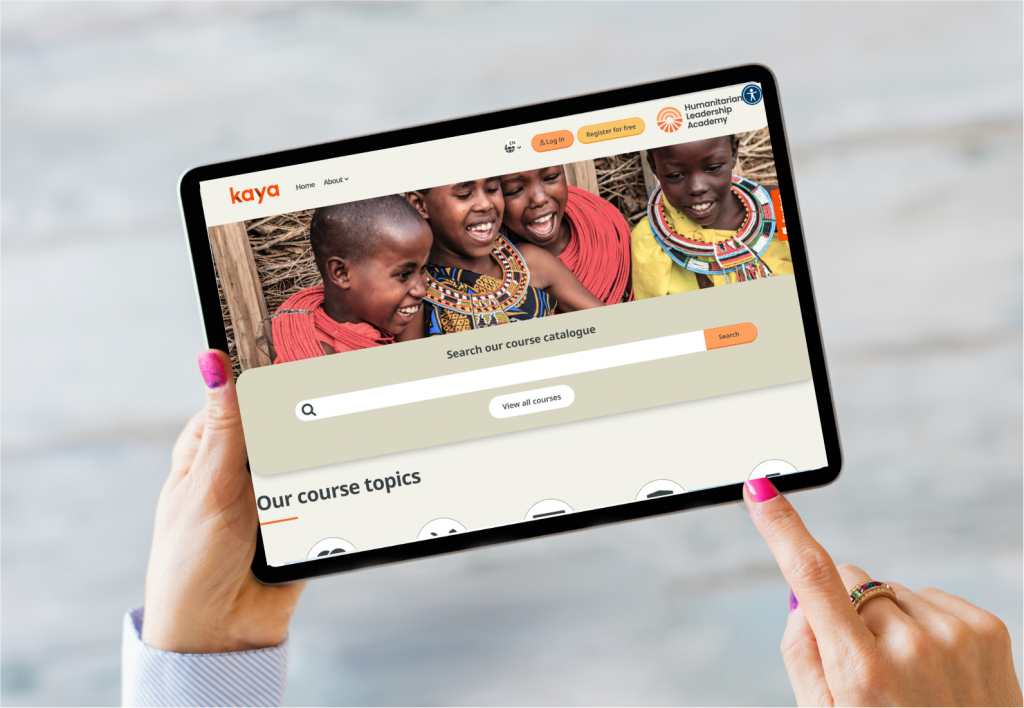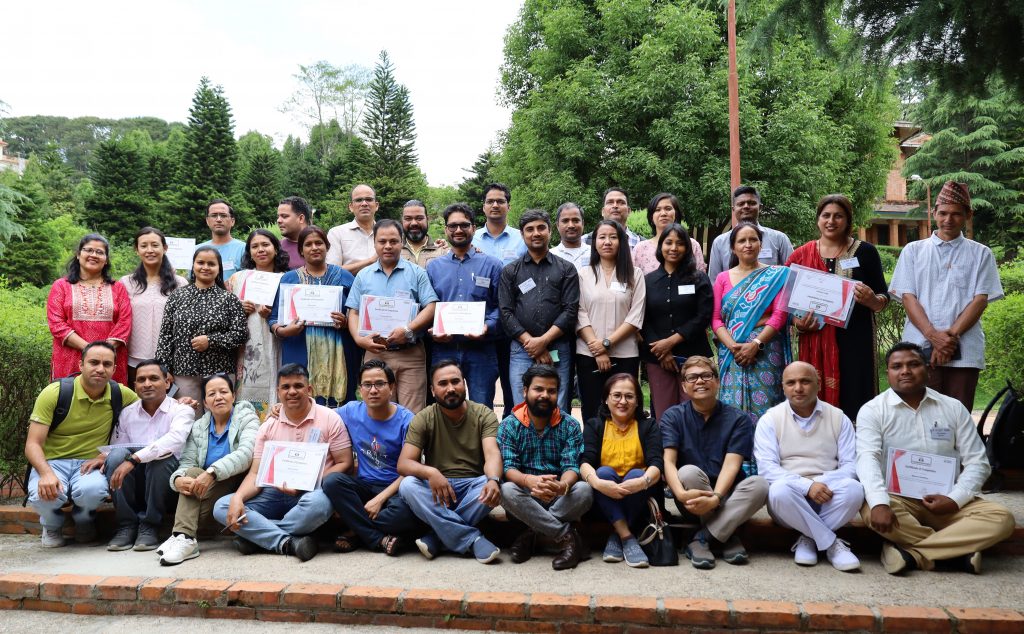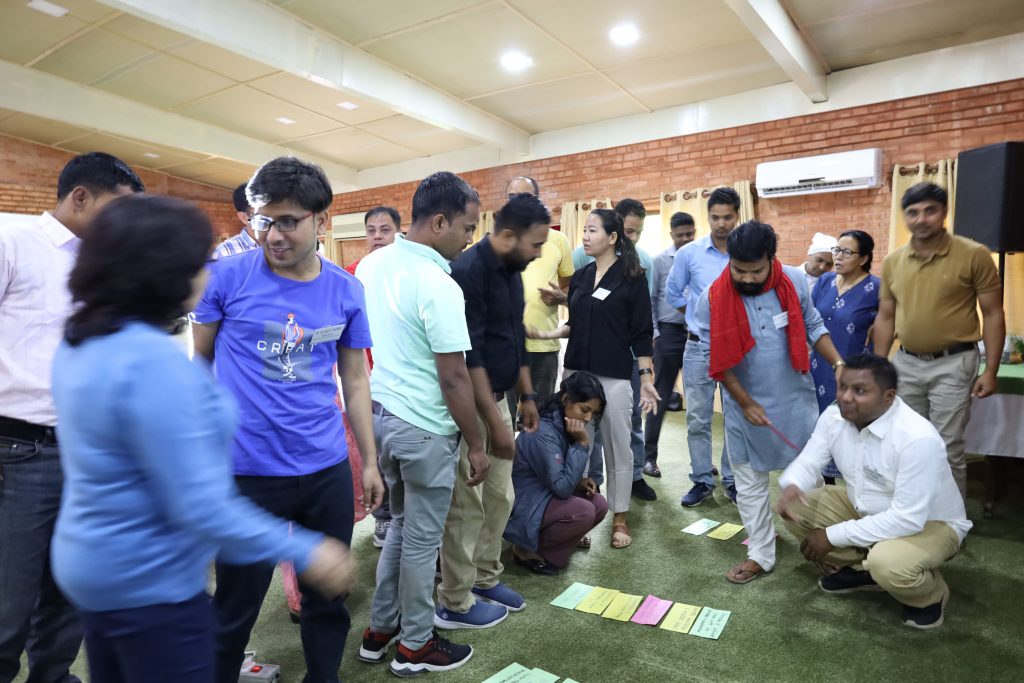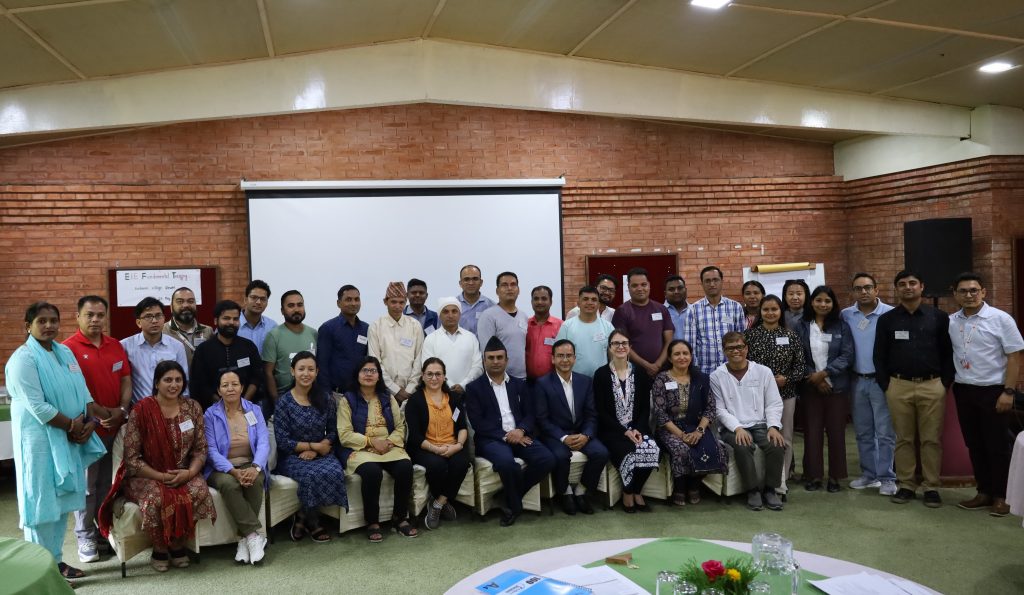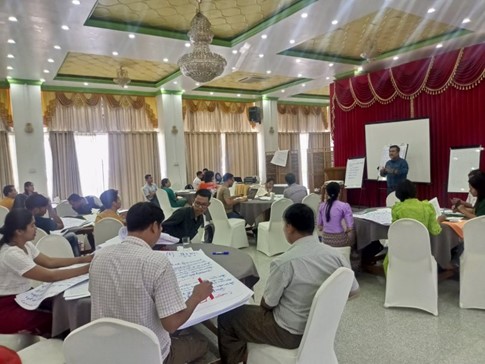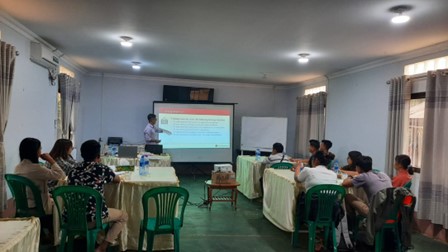Through the HLA’s reactive capacity strengthening work, we provide support to humanitarians during emergencies, helping to ensure effectiveness at every stage for affected populations, from start-up phases which need rapid action, to longer term capacity strengthening.
In this insights article, we spotlight a vital area of this reactive capacity strengthening work in the Asia Pacific (APAC) region: Emergency Preparedness Planning (EPP) training which is led by Asad Zia Iqbal, the HLA’s Regional Humanitarian Capacity Building Lead for Asia based in Pakistan.
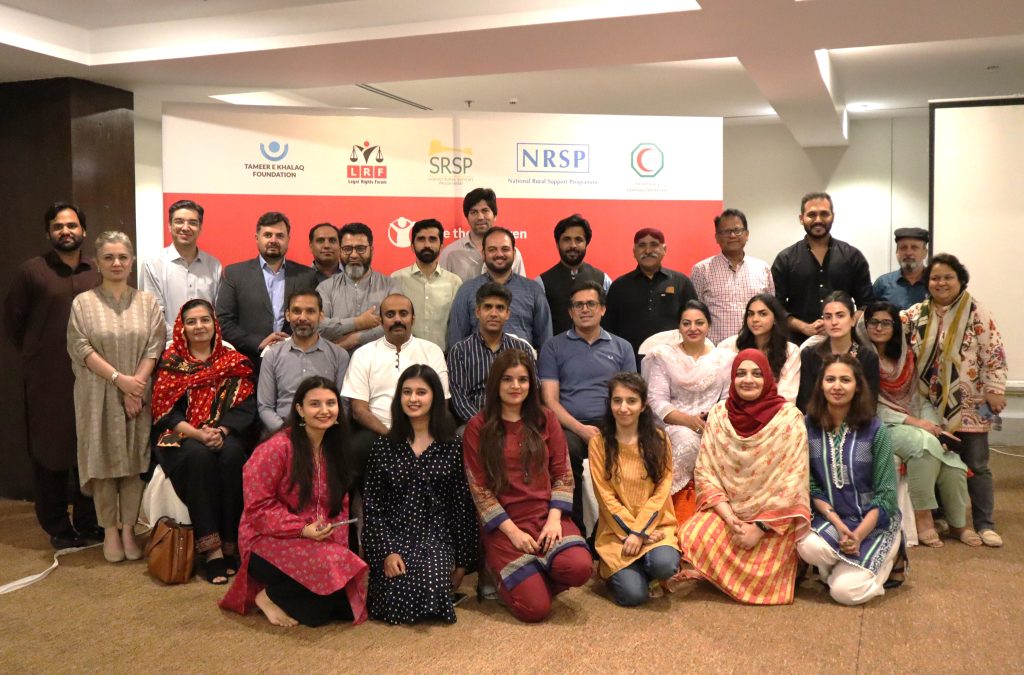
In the final quarter of 2023, Asad delivered an important phase of EPP training across the Asia Pacific region. He led a series of face-to-face EPP workshops for Save the Children Country Offices in Bhutan, China, Nepal, Laos, Pakistan and Sri Lanka, and online training for Save the Children in Bangladesh.
Collaboration with Save the Children humanitarian teams was instrumental to the effectiveness of this contextualised training.
Asad explains:
“The assistance provided for Emergency Preparedness and Response in the APAC region has allowed us to collaborate closely with Save the Children humanitarian teams in each respective country.
This collaboration has enabled us to gain insights into the preparedness and response gaps of country offices and partners, as well as the technical and operational capacities of in-country humanitarian responders.
The information gained has empowered us to tailor capacity strengthening programme specifically suited to the needs of the region, ensuring their relevance and effectiveness.
In addition, through this reactive capacity strengthening work, we advocate for country teams to have EPPs in place in the longer run for effective management of the response.”
This EPP work directly supports and complements the EPP work and training conducted by the Save the Children regional team in Asia – for example in 2023 the Regional Advocacy, Campaigns, Communications and Media (ACCM) team conducted training in crisis communications, media and communications in emergencies, and humanitarian communications.
For this insights article for the HLA, Ka Man Parkinson (HLA Communications and Marketing Advisor) spoke to Asad to gain insights into what EPP training entails and to learn more about the context in each country where this training was conducted.
Hi Asad, could you explain what Emergency Preparedness Planning is?
Preparedness is an essential part of Save the Children’s humanitarian commitment, delivering a timely, appropriate and effective humanitarian response in line with the Core Humanitarian Standard, specifically commitments 1, 2, 3, 8 and 9. [An updated version of the CHS was publicly launched in March 2024].
The plan ensures that the Save the Children International (SCI) Country Offices are prepared to respond to emergencies by having in place operational and thematic Emergency Preparedness Plans (EPPs) and risk-specific Contingency Plans, ensuring staff and partner awareness of SCI’s approaches and systems for humanitarian response, and consistently monitoring humanitarian early warning indicators.
It builds the capacity of staff and partners before and during humanitarian crisis and ensures they are supported to do their job effectively, with systems to draw upon regional and international surge capacity as required.
It sounds like EPP training underpins critical humanitarian operations for Save the Children Country Offices. What role does the HLA and the HLA Asia Regional Centre play in this?
This work directly supports the HLA’s broader work in the area of strengthening leadership and civil society. This EPP training was funded by the country offices through Humanitarian Fund (HF).
As a result of the Covid-19 pandemic and subsequent humanitarian crises in Asia, the majority of country offices have been unable to conduct their Emergency Preparedness and Response workshops since 2018.
The involvement of HLA has been instrumental in addressing gaps in EPP expertise and in streamlining the EPP processes, revitalising the planning and design of the planning workshop with regional and in-country teams, and ensuring a quality emergency preparedness plan in place that is aligned with in-country context and operating environment.
Moreover, it has played a crucial role in enhancing the capacities of both Save the Children and partners’ staff to independently conduct such planning workshops in the future.
The pivotal components of the entire EPP planning process included consultations with the government and children, as well as the involvement of local partner organisations.
The participation of local partners in the EPP process has afforded them the opportunity to glean insights and skills, enabling them to conduct their own EPP (partner-led approach) in alignment with Save the Children’s localisation objectives.
Could you briefly outline some general contextual information relating to the EPP for each country?
Yes, I will outline a brief snapshot of key contextual information for each country. The data is drawn from the EPP plans.
Bangladesh
Bangladesh is the 7th most densely populated country and one of the most climate-vulnerable in the world.

- Political instability, shrinking space for civil society, increasing inequalities, and overall limited services represent an impediment to the growth of the country.
- A considerable part of the population faces food and nutrition insecurity and chronic scarcity of livelihoods.
- Structural causes, and the demographic pressure due to rapidly growing population, heighten concerns.
- The country is exposed to natural hazards, including floods, cyclones, and earthquakes, and is highly vulnerable to the effects of climate change. Bangladesh ranks 133 in the 2020 UNDP Human Development lndex and scores 6.0 in lnform: 7.5/10 for hazards and exposure and 5.6/10 for vulnerability.
- The severity and intensity of seasonal weather patterns has intensified, challenging the capacity of vulnerable communities to recover from cyclical stocks. Bangladesh has been affected by more than 200 natural disasters over the last three decades.
Bhutan
Bhutan faces a diverse range of natural hazards due to its distinctive geographical setting, making it particularly vulnerable to glacial lake outburst floods, floods, landslides and earthquakes.

The country’s susceptibility is exacerbated by the impacts of climate change, leading to more frequent and severe events in recent years.
China
China is particularly prone to frequent and devastating natural disasters. The disasters are characterised by their diversity, frequent occurrence, wide area coverage and serious losses.

- Almost all types of natural disasters occur in China, including flood, drought, earthquake, sand-dust storms, mass movement wet (including avalanches and landslides), extreme weather and temperature, epidemic, air pollution, forestry and grassland fires.
- According to the Chinese Government, in a typical year, up to 200 million people are affected by natural disasters in China, and children are especially vulnerable.
Nepal
Located in the central Himalayas, Nepal’s topography and climate make it one of the most disaster-prone countries in the world.

- Nepal is exposed to multiple hazards, including frequent earthquakes, floods, landslides, glacial lake outburst flood (GLOF), fire (forest and house), droughts, road accident thunderstorms, heat waves, cold waves, avalanches, hailstorm, snakebite, drowning, windstorms, number of health hazards and so on.
Laos
Laos is vulnerable to recurrent, sudden-onset and slow onset natural disasters such as floods, as well as storms and typhoons causing the more serious humanitarian impacts.

- While Laos is not a typically disaster-prone country, it is vulnerable to recurrent, sudden-onset and slow onset natural disasters such as floods, as well as storms and typhoons causing the more serious humanitarian impacts.
- A lower-middle income country ($2,353 GDP per capita in 2016) with a population of about 7 million people, 23% of which live below the poverty line.
Pakistan
For the past 20 years, Pakistan has consistently ranked among the top 10 most vulnerable countries on the Climate Risk Index.

- For the past 20 years, Pakistan has consistently ranked among the top 10 most vulnerable countries on the Climate Risk Index, with 10,000 fatalities due to climate-related disasters and financial losses amounting to about $4 billion from 173 extreme weather events.
- Due to its geography and climactic conditions, the country is especially vulnerable to a range of natural hazards such as droughts, earthquakes, and flooding.
- A history of conflict and political and economic instability also put it at risk of manmade disasters such as armed conflict, bomb attacks, industrial hazards, forest and urban fires, to name a few.
Sri Lanka
The prominent hazards in Sri Lanka are coastal erosion, drought, floods, landslides, lightning, sea level rise, storm surge, tropical cyclone, and tsunamis.

- The prominent hazards in Sri Lanka are identified by the Disaster Management Center (DMC) as coastal erosion, drought, floods, landslides, lightning, sea level rise, storm surge, tropical cyclone, and tsunamis.
- Those hazards are identified based on historical records as well as climate change predictions. Sri Lanka has some records of sea surges possibly due to cyclonic wind and tsunami.
Could you explain how EPP work is carried out?
The overall support provided involves pre- and post-workshop work that includes working with the country office teams to develop the following for the country office:
Context analysis: highlights emergency risks, trends, indicators and triggers.
Context analysis includes existing analysis of risk and vulnerabilities available within the country of regional context, with the support from the Context Analysis and Foresight Unit (CAFU).
This analysis is also informed by external documents from local government officials, UN agencies and other own programming by country office experience and discussion with communities and children.
Consultations with Government and Children: The context analysis is then shared with government and other stakeholders to validate that relevance of risks identified with the government’s own disaster risk analysis. The critical input comes from the consultations with children.
The HLA, with the support from regional and global colleagues, has put together a children consultation guidance document that supports SC Country Offices to undertake those consultations with children.
The consultation provides an opportunity for children to influence relevant decisions impacting whether and how we work with them and their communities in times of emergencies.
Children’s consultation group
This consultation in China provided an opportunity for children to influence relevant decisions impacting whether and how we work with them and their communities in times of emergencies.
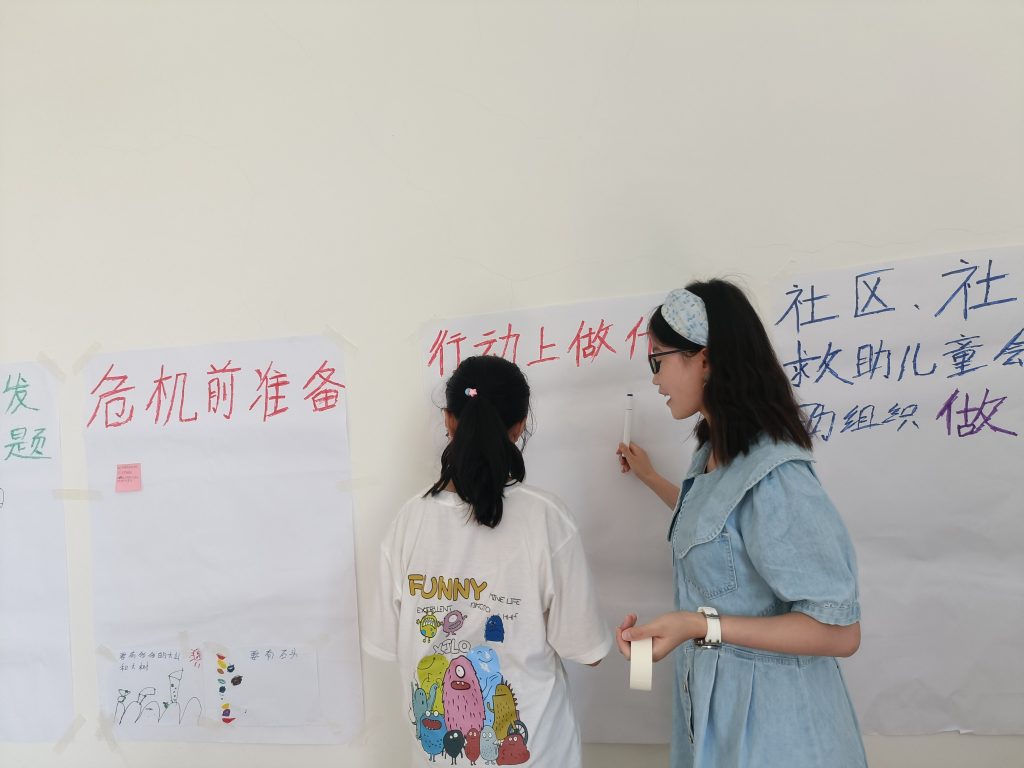
Workshop Planning and Design is done jointly with in-country humanitarian and team of facilitators.
Terms of Reference (ToRs) for the workshop are developed, workshop action plans are laid out, roles are assigned and agenda/timetable for the workshop is outlined and finalised.
Workshop Delivery includes learning session and group work to validating risk, ranking risks based on likelihood and impact, identifying indicators, assigning of triggers to indicators, outlining anticipatory actions and developing plan of humanitarian actions under each risk identified during context analysis.
During the workshop, participants also work on the Minimum Preparedness Actions (MPAs) and Advance Preparedness Actions (APAs – for high risks). The gaps identified during MPAs review process informs the Preparedness Action Plan (PAP) which serves as the Country Office’s capacity building plan for humanitarian preparedness.
Post workshop review to make sure document accuracy, completeness with respect to the discussions during the workshop and also to get input, review and feedback from the Humanitarian Technical Team (HTT).
An important next step is to prepare a synthesis of Preparedness Action Plans (PAPs) across the region, which will be used for regional capacity strengthening for upcoming responses.
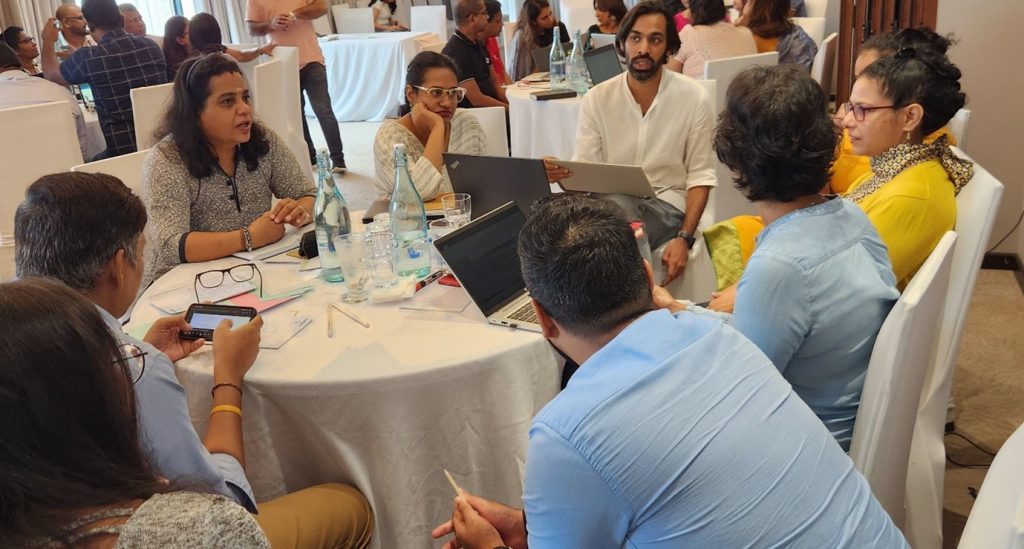
The EPP exercise for the Sri Lanka Country Office was really impressive. I feel that it ensured accountability and commitment by involving all key functions, senior management, and field representatives. This approach not only analysed the range of insights on potential hazards but also effectively assessed in-country needs, gaps, and capacities for better preparedness for humanitarian crisis in both functional and programmatic areas.
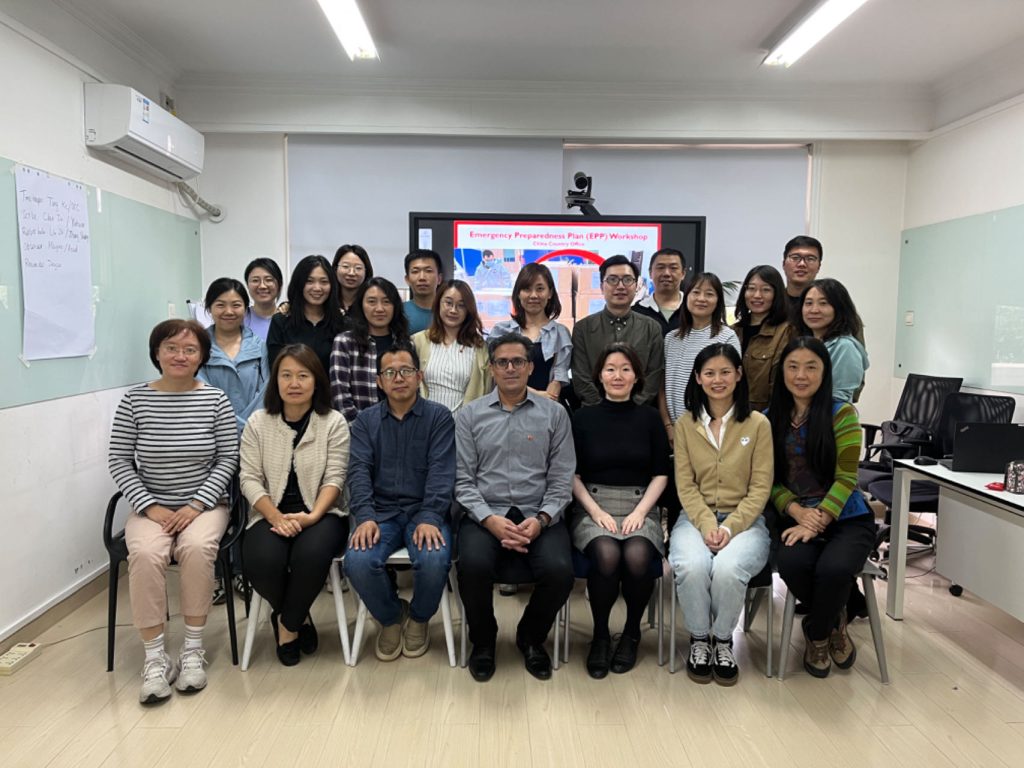
The EPP workshop held in October 2023 helped all functions of the China Country Office understand how and what immediate support we are able provide to children and their families suffering after natural disasters. With the process, the China Country Office has also identified the gaps and capacity needs for the coming year – this has allowed the CO to develop appropriate resource plan at national level and partner engagement as well.
Thank you for sharing these insights and for highlighting this important work, Asad.
Asad and the HLA Asia team extends thanks to Save the Children Asia Regional Office’s humanitarian and operational teams for their technical support and input throughout the process and also technical and operational support from respective countries in Asia.
Learn more about the HLA Asia Regional Centre
Learn more about the HLA’s Reactive Capacity Strengthening work
